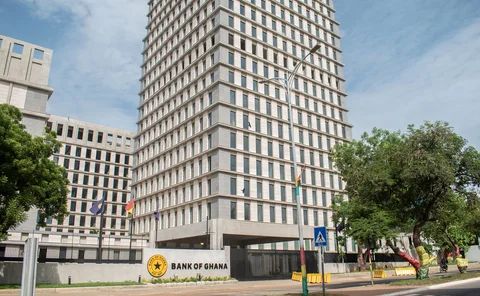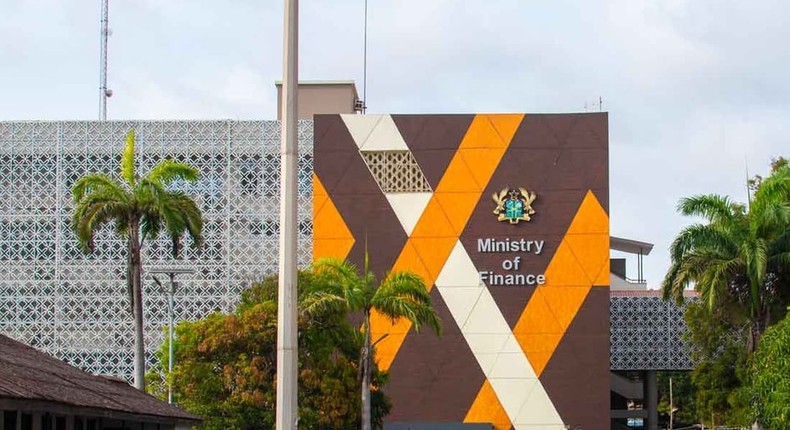Ghana’s Debt-to-GDP Ratio Expected to Reach 59% by 2025 – IMF
The International Monetary Fund (IMF) has projected that Ghana’s public debt-to-GDP ratio will reach 59.1 percent by the end of 2025, reflecting the country’s gradual recovery from its recent debt distress and ongoing fiscal consolidation efforts.
This forecast was published in the IMF’s October 2025 Fiscal Monitor Report, unveiled during the IMF/World Bank Annual Meetings in Washington, D.C. The figure is slightly below the Ghanaian government’s own projection of 60 percent for the same period.
According to the IMF, Ghana’s debt ratio is expected to fall steadily over the next three years — to 56.1 percent in 2026, 53.7 percent in 2027, and 51.3 percent by 2028.
If realised, this performance would place Ghana ahead of the 55 percent target outlined under the Extended Credit Facility (ECF) Programme, which is designed to restore debt sustainability and stabilise the economy after years of fiscal strain.
The Fund emphasised that these projections are based on post-debt restructuring data and assume the government continues to adhere to agreed fiscal reforms.

Data from the Bank of Ghana’s September 2025 Financial and Economic Report shows that as of July 2025, Ghana’s public debt stood at GH¢628.8 billion, representing 44.9 percent of GDP.
It remains uncertain whether the debt stock will rise again before the end of the year, as the outlook depends on exchange rate trends, interest payments, and economic growth levels.
Economists suggest that as the country finalises debt restructuring deals and maintains prudent spending, the overall debt burden could continue to ease. Ghana’s successful completion of bilateral debt negotiations with key partners in 2025 has already contributed to improved investor confidence.
Speaking at the Fiscal Monitor briefing, Davide Furceri, Deputy Division Chief at the IMF’s Research Department, advised Ghana to strengthen public financial management systems to prevent future debt crises.
He also called for enhanced domestic revenue mobilisation, especially through improved tax compliance and VAT expansion, to create fiscal space for social and infrastructure spending.
Furceri noted that sustained fiscal discipline, transparency, and better public expenditure controls are vital for maintaining Ghana’s post-restructuring gains.

The Ministry of Finance has confirmed that Ghana has reached debt restructuring agreements with six bilateral creditors, covering a significant portion of its external obligations. Talks with commercial lenders are ongoing and expected to conclude before mid-2026.
In a statement, the Ministry reiterated that the government remains committed to fiscal discipline and sustainable borrowing practices, guided by the Public Financial Management (PFM) Act, Section 57, and the Medium-Term Debt Management Strategy (2025–2028).
Officials maintain that the ongoing reforms — supported by the IMF’s ECF programme — will help reduce borrowing costs, improve debt transparency, and secure long-term macroeconomic stability.
Ghana’s debt situation serves as a critical test case for other African economies facing similar fiscal pressures. The country’s restructuring programme, coupled with IMF-backed reforms, is being closely watched as a model for managing debt crises while protecting growth and social investment.
A sustainable debt level would not only stabilise Ghana’s economy but also strengthen credit ratings, reduce inflationary pressures, and attract private sector investment, supporting the government’s industrialisation and job creation goals.
As of mid-2025, Ghana’s inflation had dropped to around 22 percent from over 40 percent in 2023, showing gradual macroeconomic improvement amid tight monetary controls.

Experts caution that sustaining the downward trend in debt will depend on Ghana’s ability to maintain fiscal discipline ahead of the 2026 election year, when spending pressures typically rise.
The IMF’s projections suggest cautious optimism — but successful implementation of reforms, efficient tax administration, and prudent spending will determine whether Ghana can meet its medium-term debt targets.
If the current trajectory holds, Ghana could re-establish itself as one of West Africa’s most fiscally stable economies by the end of the decade.
Read also: Ghana’s Beloved Susu System Struggles to Survive in the Mobile Money Era

